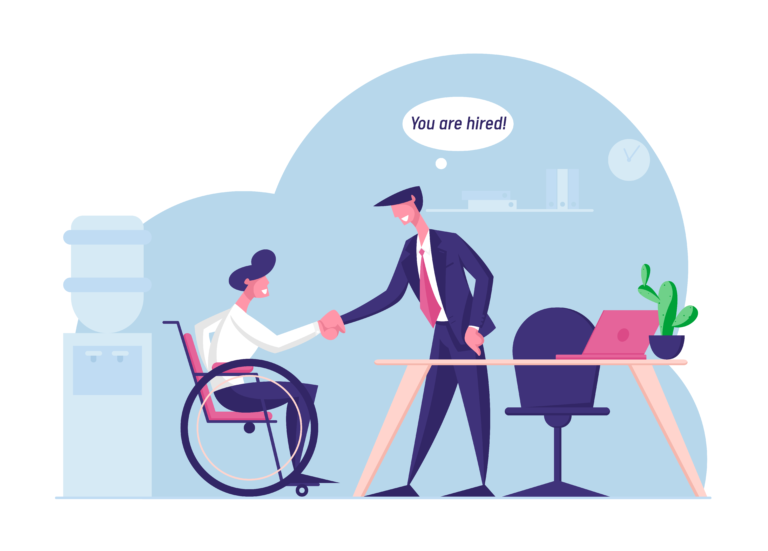Challenge Yourself With a Growth Mindset
If you want to be at the top of your game from a business or clinical perspective, you need to learn to be uncomfortable with the status quo. Because the audiology industry is constantly changing, such as the periodic introduction of innovative technology and a consumer-focused mindset adopted by today’s patients, you must continually grow as a professional or risk getting left behind. The first step in this process is developing a growth mindset. This Ask Fuel First section asks the following question: How can I develop professionally by challenging myself?
Fixed Mindset vs. Growth Mindset
Have you met someone described as a self-starter or go-getter? You know, the kind of person who tends to achieve more than others by surpassing expectations. You might be tempted to think they’re genetically superior, but that’s a myth. These people have a growth mindset. The Harvard Business Review says that “individuals who believe their talents can be developed (through hard work, good strategies, and input from others) have a growth mindset” (HBR, 2016).
The opposite of this is a fixed mindset. These are people who avoid challenges and feedback from others and shy away from anything unfamiliar. Often, those with a fixed mindset believe in innate talent. This isn’t bad if they believe they’re talented and work to achieve success based on that perception. The problem is that most people don’t have that type of confidence in their abilities and don’t strive to be better. Adopting a growth mindset, however, allows anyone willing to put in the hard work a chance for greatness.
Benefits of Having a Growth Mindset
When you adopt a growth mindset, there are several benefits for you personally and professionally, including the following:
- Increased resilience to challenges: View challenges as opportunities to grow and learn from mistakes.
- Greater enjoyment of learning: When you see learning as a way to move forward and possibly achieve goals, you’ll be more eager to learn, eventually finding enjoyment in the process as it relates to success.
- Improved professional achievements: Moving past adversity by not giving up means you are more likely to achieve your professional goals.
- More connections and stronger relationships: When you know you don’t have all the answers, you’ll be open to hearing what others say, which leads to making connections. Listening and learning from your connections paves the way for relationships.
How Does This Relate to Healthcare?
Having a growth mindset can make you better at your job and ensure more patients follow treatment protocols. For example, an audiologist with a fixed mindset who’d like to start improving their close or help rate might say, “I’ve never been good at sales. Hearing aids are just too expensive for most people, and I don’t know what I could do differently to help patients get the treatment they need.” On the contrary, an audiologist with a growth mindset might say, “Well, I’m not good at persuading patients to follow through with their treatment plans now, but I can learn. There are a lot of resources out there to help me get better.”
Challenging situations can completely derail those with a fixed mindset because they believe that if they don’t already have the skills necessary to complete a task, there’s no bother trying to learn them. It doesn’t have to be this way. Whether you’re looking to change your organization for the better or improve personally, having a growth mindset can get you through tough situations and is critical to your success.
Six Steps for Professional Development
To foster a growth mindset, you’ll need to be the master of your own professional development. Follow these six tips to get started:
- Set goals: Make a list of professional goals that you’d like to achieve in the next three months, six months and year. Then, identify gaps in your skill set that are preventing you from achieving those goals. This is where your learning should start.
- Put in the effort: Make an effort to set your goals into action. Any obstacles should be viewed as opportunities to learn, putting you one step closer to achieving your goals.
- Seek out and embrace challenges: Don’t be afraid to get out of your comfort zone by trying something new.
- Celebrate failures: Setbacks are teachable moments that eventually lead to the development of unshakable confidence.
- Ask for feedback: Once you’re able to see failure as an opportunity to improve, you’ll be ready to actively seek feedback from others. This will help you hone your skills even further.
- Reflect: Keep a journal of your progress so you canreflect on what worked and what didn’t.
A growth mindset can help you stay flexible when the situation calls for it. You’ll inevitably run into a scenario in your career where you’ll benefit from learning a new skill or changing the way you currently think about something. When you start getting more comfortable with being uncomfortable, these scenarios become much easier for you to handle and ultimately prosper. Now that you know what a growth mindset is and understand how it benefits you professionally, it’s time to reach out to your regional team to learn more about getting uncomfortable.


